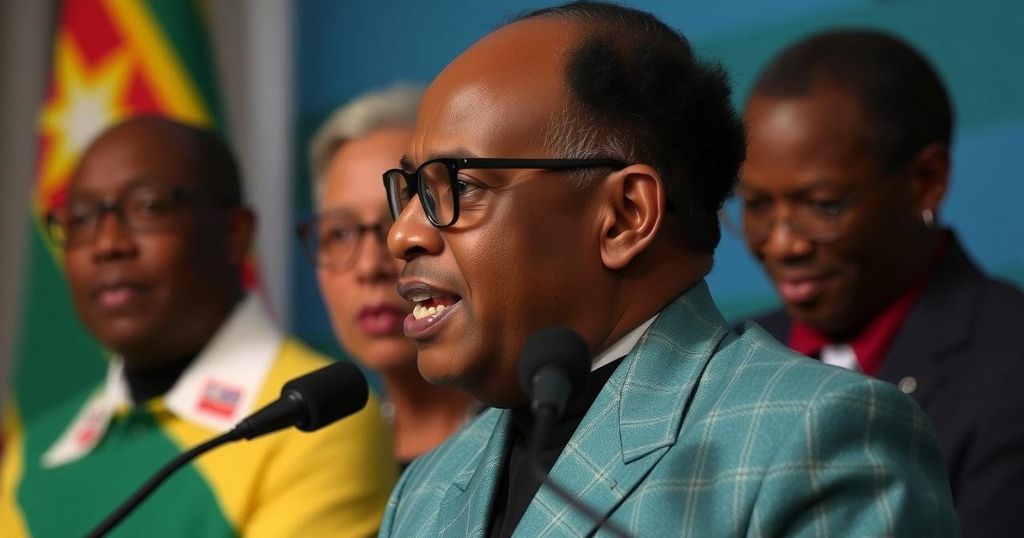Mozambique’s Constitutional Council will decide on Monday whether to validate the disputed election results, amid threats of popular uprising from opposition leader Venancio Mondlane. The Frelimo party candidate, Daniel Chapo, reportedly won 71% of votes, while Mondlane claims he secured 53%. Political unrest has left at least 130 dead as tensions mount over the elections.
Mozambique’s Constitutional Council is set to announce its decision regarding the validation of the contested election results this coming Monday, amidst political turmoil that has engulfed the nation. Opposition leader Venancio Mondlane, currently in exile, has threatened to incite a “popular uprising” should the Council endorse the preliminary outcomes, which placed him second in the October 9 elections behind the ruling Frelimo party candidate, Daniel Chapo. The Council’s president, Lucia da Luz Ribeiro, will publicly proclaim these definitive results at a hearing, as stated in a recent council announcement.
The official election commission reported that Mondlane received 20 percent of the presidential votes, while Chapo garnered 71 percent. Mondlane, however, claims that the election was fraudulent and asserts he actually received 53 percent of the votes. Observers from various international missions have also pointed out inconsistencies in the electoral process. The unrest that has followed these elections has resulted in the deaths of at least 130 individuals, as reported by the non-governmental organization Plataforma Decide.
Mondlane has warned that should the initial election results be validated, Mozambique could face “chaos” and a significant uprising not previously seen in the country. He has sought refuge outside of Mozambique, citing safety concerns and expressing fear for his life. The Frelimo party has maintained a hold over Mozambique since it gained independence from Portugal in 1975, marking several decades of governance amidst economic challenges and political strife.
The political landscape in Mozambique has been characterized by tensions between the ruling Frelimo party and opposition groups since its independence. The recent presidential and legislative elections, which were held on October 9, have intensified these tensions, particularly after allegations of electoral fraud surfaced. The elections have led to significant unrest, resulting in considerable casualties and illustrating the fragile state of democracy in Mozambique. The role of the Constitutional Council is crucial in determining the legitimacy of the election results, which could have far-reaching implications for the stability of the nation. The ongoing situation highlights the historical context of governance in Mozambique, where the Frelimo party has faced challenges from various opposition parties over the years, particularly from the Renamo party, which Mondlane has represented. The Council’s ruling on the election results will be pivotal in shaping the future political climate of the country, as opposition leaders mobilize their supporters in response to perceived injustices.
The impending ruling by Mozambique’s Constitutional Council regarding the recent election results carries significant potential consequences for the country’s political stability. With accusations of electoral fraud and threats of a popular uprising from opposition leader Venancio Mondlane, the situation remains precarious. The legacy of Frelimo’s prolonged governance continues to influence the dynamics of political conflict in Mozambique, and the Council’s decision may either exacerbate tensions or pave the way for resolution. The potential for increasing unrest underscores the urgent need for a transparent electoral process and political dialogue to prevent further loss of life and social instability.
Original Source: www.barrons.com






